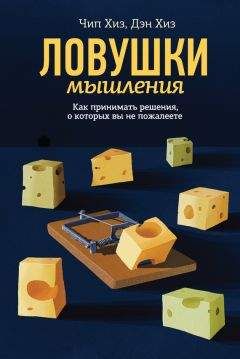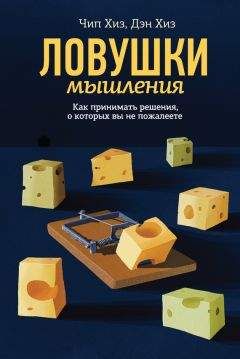Машина мышления. Заставь себя думать - Курпатов Андрей Владимирович
• с одной стороны, реализуя образ жизни, который способствует формированию и развитию полноценного интеллекта у людей (сюда относятся цифровая гигиена, развитие «эмоционального интеллекта» и, конечно, качественная социализация наших детей, воспитание их в среде),
• с другой стороны, создавая технологии, интеллектуальные практики, а также социальные общности, способные потенцировать мышление, тренировать его и делать саму нашу жизнь более осмысленной.
И если то, чем занята моя «машина мышления» в рамках своей исследовательской и просветительской деятельности, этому хоть как-то поспособствует, я буду считать, что она работает не зря.
Список литературы
Глава 6
Спереди назад и обратно
1 Лурия А.Р. Высшие корковые функции и их нарушение при локальных поражениях мозга. М., 1962, 2-е изд. 1969. С. 418–419.
2 Cowan, N., Morey, С.С., Chen, Z., & Bunting, М.Е (2007). What do estimates of working memory capacity tell us? In N. Osaka, R.H. Logie, & M. D’Esposito (eds.). The cognitive neuroscience of working memory. Oxford, U.K.: Oxford University Press. P 43–58.
3 Лофтус Э. Память. Пронзительные откровения о том, как мы запоминаем и почему забываем ⁄ Пер. с англ. И. Никитиной. М.: Азбука-Аттикус, 2018.
4 L.D. Selemon and Р. S. Goldman-Rakic. Common Cortical and Subcortical Targets of the Dorsolateral Prefrontal and Posterior Parietal Cortices in the Rhesus Monkey: Evidence for a Distributed Neural Network Subserving Spatially Guided Behavior. Journal of Neuroscience.
8 (1988). P. 4049–4068.
PS. Goldman-Rakic. Circuitry of the Primate Prefrontal Cortex and the Regulation of Behavior by Representational Memoir. In Handbook of Physiology, The Nervous System, Higher Functions of the Brain. Ed. F. Plum. Bethesda, MD: American Physiological Society, 1987. P. 373–417.
M.L. Schwartz and P. S. Goldman-Rakic. Prenatal Specification of Callosal Connections in Rhesus Monkey. Journal of Comparative Neurology 307 (1991). P 144–162.
5 Hamid Reza Naghavi, Lars Nyberg Common fronto-parietal activity in attention, memory, and consciousness: Shared demands on integration? // Consciousness and Cognition. 2005.14(2). P. 390–425.
6 Jung R.E., Haier RJ. (2007). The parieto-frontal integration theory (P-FIT) of intelligence: converging neuroimaging evidence // Behavioral and Brain Sciences. 30. P. 135–187.
7 Deary I. J., Penke L., & Johnson W. (2010). The neuroscience of human intelligence differences. Nature Reviews Neuroscience. 11(3). P. 201–211.
8 Baars B. A cognitive theory of consciousness. Cambridge University Press. 1988. P. 424.
9 Dehaene S., ChangeuxJ. P. Experimental and Theoretical Approaches to Conscious Processing // Neuron. Vol. 70. Issue 2. 28 April. 2011. P. 200–227.
10 Dehaene S., Kergsberg M., and Changeux J.P. A neuronal model of a global workspace in effortful cognitive tasks // Proceedings of the National Academy of Sciences USA. 95.1998. P. 14529-14534.
11 Xia Liang, Qihong Zou, Yong He, Yihong Yang Topologically Reorganized Connectivity Architecture of Default-Mode, Executive-Control, and Salience Networks across Working Memory Task Loads // Cerebral Cortex, 2015.26(4).
12 Roger E. Beaty, Mathias Benedek, Robin W. Wilkins, Emanuel Jauk, Andreas Fink, Paul J. Silvia, Donald A. Hodges, Karl Koschutnig and Aljoscha C. Neubauer Creativity and the default network: A functional connectivity analysis of the creative brain at rest // Neuropsychologia, 2014. 64. P. 92–98.
13 Лурия А. Потерянный и возвращенный мир. Маленькая книжка о большой памяти ⁄⁄ СПб.: Питер, 2018.
14 Powell J., Lewis Р, Dunbar R., Garcfa-Finana, M. & Roberts, N.: Orbital prefrontal cortex volume correlates with social cognitive competence // Neuropsychologia. 2010. 48. P. 3554–3562.
15 Murphy A.C., Bertolero M.A., Papadopoulos L. et al. Multimodal network dynamics underpinning working memory // Nature Communications. 11. 3035 (2020).
16 Derek Evan Nee Integrative frontal-parietal dynamics supporting cognitive control // eLife (IF 7.080) Pub Date: 2021-03-02.
17 A-C. Ehlis at all. Cortical activation during two verbal fluency tasks in schizophrenic patients and healthy controls as assessed by multi-channel near-infrared spectroscopy // Psychiatry Research: Neuroimaging. Vol. 156. Issue 1. 15 October. 2007. P. 1–13.
18 Голдберг Э. Креативный мозг: как рождаются идеи, меняющие мир. М.: Эксмо, 2019. С. 221–222.
19 Голдберг Э. Парадокс мудрости. Научное опровержение «старческого слабоумия». Революционный взгляд на мышление человека. М.: Поколение, 2007. 384 с.
20 Arnsten А.Е, Paspalas C.D., Gamo N.J., Yang Y, Wang M. Dynamic network connectivity: A new form of neuroplasticity // Trends Cogn Sci. 2010. 14. P 365–375.
21 Голдберг Э. Креативный мозг: как рождаются идеи, меняющие мир. С. 111.
22 Corbetta М., Patel G., and Shulman G.L. The Reorienting System of the Human Brain: From Environment to Theory of Mind // Neuron. 2008. 58. P. 306–324.
23 Simone Vossel S., Geng J.J., Fink G.R. Dorsal and Ventral Attention Systems. Distinct Neural Circuits but Collaborative Roles // Neuroscientist. 2014. Apr. 20(2). P. 150–159.
24 Buckner R.L. The brain’s default network: origins and implications for the study of psychosis // Dialogues in Clinical Neuroscience. Vol. 15. No. 3. 2013.
Глава 7
Справа налево и обратно
25 Falk D., Lepore ЕЕ., Noe A. The cerebral cortex of Albert Einstein: a description and preliminary analysis of unpublished photographs // Brain. Vol. 136. Issue 4. 2013.P 1304–1327.
26 Weiwei Men, Dean Falk, Tao Sun, Weibo Chen, Jianqi Li, Dazhi Yin, Lili Zang, Mingxia Fan The corpus callosum of Albert Einstein‘s brain: another clue to his high intelligence? // Brain. 2014. 137(4). P e268.
27 Газзанига M. Кто за главного? Свобода воли с точки зрения нейробиологии. М.: ACT: CORPUS, 2017.
28 Knecht S., Drager В., Deppe M., Bobe L., Lohmann H., Fidel A., Ringelstein E.B., Henningsen H. Handedness and hemispheric language dominance in healthy humans // Brain: A Journal of Neurology. 2000. C. 2512–2518.
29 Хомский H. Язык и мышление. M.: Изд-во Московского университета, 1972.
30 Лакофф Дж. Метафоры, которыми мы живем: М.: Едиториал УРСС, 2004. С. 93–96.
31 Пинкер С. Субстанция мышления: язык как окно в человеческую природу. М.: УРСС: Книжный дом «ЛИБРОКОМ», 2016. С. 38, 67–68.
32 D. Galin, R. Ornstein. Lateral specialization of cognitive mode: an EEG study. Psychophysiology. 1972.
33 Mariska E. Kret, Beatrice de Gelder. A review on sex differences in processing emotions // Neuropsychologia. 2012. 50(7). P. 1211–1221.
34 Rena Li. Why women see differently from the way men see? A review of sex differences in cognition and sports //Journal of Sport and Health Science, 2014. Vol. 3. Issue 3. P. 155–162; Mikkel Wallentin Putative sex differences in verbal abilities and language cortex: a critical review // Brain Lang. 2009. 108(3). P. 175–183.
35 Frings L., Wagner K., Unterrainer J., Spreer J., Hals-band U., & Schulze-Bonhage A. (2006). Gender-related differences in lateralization of hippocampal activation and cognitive strategy. NeuroReport: For Rapid Communication of Neuroscience Research. 17(4). P 417–421.
36 Cahill L. Why Sex Matters for Neuroscience // Nature reviews Neuroscience. 2006. 7(6). P. 477–484.
37 David Miller, Diane Halpern. The new science of cognitive sex differences // Trends in Cognitive Sciences. 2013. 18(1).




